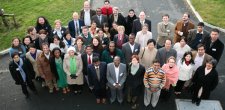Posted by Lalanath de Silva
News Release from Access Info Madrid, 11 March 2009, for immediate release
The European Court of Justice ruled on 10 March 2009 that it is illegal to enforce against individuals a law which has not been made public. The case referred to rules governing what cannot be carried onto aircraft, which for years since they were first adopted in 2002 were kept secret, violating the fundamental principle that a law is not a law until it has been published. The news release was issued by Access Info Europe, a human rights organization dedicated to promoting and protecting the right of access to information in Europe and contributing to the development of this right globally.
The result of these secret “laws” has been widespread confusion and misinterpretation. Not only did an Austrian gentleman have his tennis racquet confiscated (which was the origin of the case to the European court) but many people have had nail clippers and scissors and tweezers and other small personal items confiscated when in fact the rules (which were eventually made public by the European Commission on 8 August 20082) state that only scissors and knives with blades longer than 6cm are prohibited.
“A fundamental principle of democracy is that a law is not valid until it has been published. Citizens cannot be expected to comply with laws they cannot even know about. If we abandon these principles, even in the name of the fight against terrorism, then terrorists and others who do not believe in democracy really are gaining the upper hand,” said Helen Darbishire, Executive Director of Access Info.
Access Info reports that it is not only the European Union which has kept this list secret. A freedom of information request to the UK government to know what UK law says about what cannot be carried onto aircraft was refused on 29 September 20083 with the argument that to disclose the actual regulations, even partially, would make it “easier for the information to fall into the hands of a person with hostile intent.”
The problem with this line of argument is that it confuses the compulsory publication of laws, with no exceptions, with other information which may be subject to exceptions from disclosure. In this case it might be possible to withhold some aspects of information about airport security such as the technical specifications of X-ray machines in airports. But any rules with which the public must comply as a matter of law can never be subject to exception.
Access Info calls on all governments in Europe to make public the national laws, regulations and rules relating to what passengers may not carry onto aircraft. As Franz Kafka said in his short story Before the Law, “the law should always be accessible to everyone”.
For further information, please contact: Helen Darbishire, Executive Director, Access Info Tel: +34 667 685 319 (mobile) Tel : +34 91 366 5344 (office) helen@access-info.org
Editors Notes
-
Judgment of the Court of Justice of the European Communities in Case 345/06
-
COMMISSION REGULATION (EC) No 820/2008 of 8 August 2008 laying down measures for the implementation of the common basic standards on aviation security.
-
Letter to Helen Darbishire from UK Department of Transport of 29 September 2009, Reference F0004502, which states at paragraph 6 that: The Department is of the view that to safeguard national security, information on the Government’s guidance to the aviation industry regarding airport security measures should not be made public. To make such information widely available would potentially undermine the effectiveness of the National Aviation Security Programme (NASP) as it would be much easier for the information to fall into the hands of a person with hostile intent. This danger is present even where only a limited amount of information is disclosed as incomplete or partial information can be used to supplement information already in the public domain and can be used to build a clearer picture of the UK’s aviation security measures.
